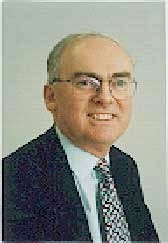UK health claims expert criticises EFSA methodologies

Speaking at an event in Brussels last week organized by the European Health Claims Alliance (EHCA), Dr David Richardson of the consultancy DPR Nutrition, showed why he believes EFSA needs to rethink its approach.
He proposed “an overlaid system” whereby some kind of grading of evidence could be employed, allowing EFSA opinions to reflect the inconclusiveness of much scientific data.
“Can there be an overlaid system so that causality issues are not defined?” Dr Richardson asked rhetorically in a panel discussion.
In highlighting a number of disparities between the regulation and its interpretation Dr Richardson noted the regulation called for the, “Extent to which a cause and effectis demonstrated” which was being interpreted by EFSA as a need to demonstrate, “Conclusive evidence of cause and effect” for each nutrient-health benefit relation.
Other disparities included:
• “The claimed effect must be a beneficial nutritional or physiological effect” being interpreted by EFSA as, “The claimed effect must be a physiological effect.”
• “Requires weighing of evidence by assessing the strength, consistency
and biological plausibility (likelihood) of the totality of the available data” being interpreted as, “Application of PASSCLAIM as gold standard to be achieved”.
• “Categorise sources of data by scientific hierarchy” being interpreted as, “Use of medicinal paradigms”.
• “Proportionate approach” being interpreted as a, “Rigid approach”.
Dr Richardson said the effects would be a stifling of innovation and, “alternative communications that may undermine consumer understanding.”
Unexpected scrutiny
He said much of the nutrition science that was being called upon in health claim dossiers had not been designed to support health claims and was part of the reason so many dossiers were failing to impress EFSA’s claims assessment panel.
“That’s why PASSCLAIM was better because it recognised nutrition science was not perfect,” he said. “The science is being scrutinised in ways that the authors of the studies never expected.”







